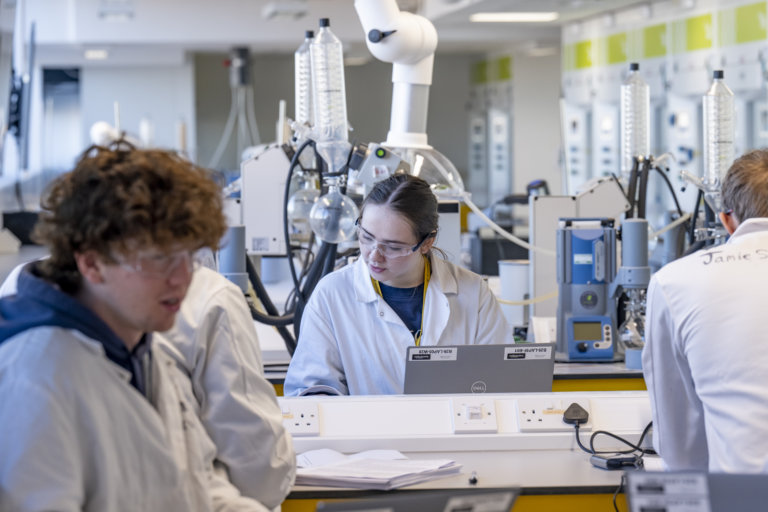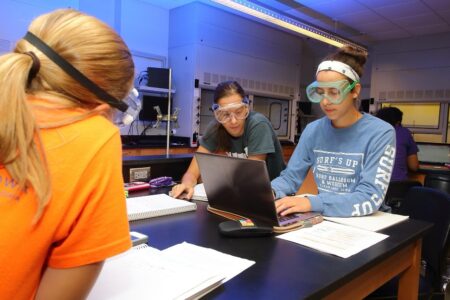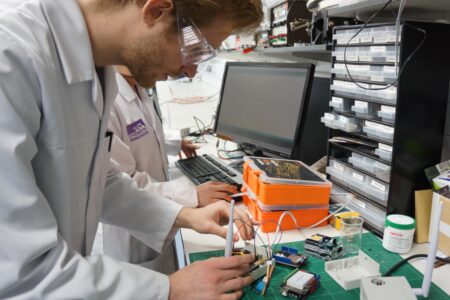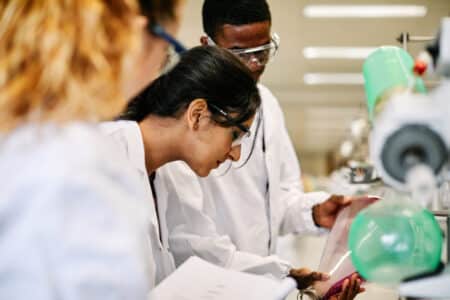
For some, joining the ranks of renowned chemists like Marie Curie, Robert Bunsen, and Carolyn Ruth Bertozzi is the dream. From discovering radium and polonium to applying chemical synthesis towards the study of biological systems, chemists are arguably the architects of modernity. The question is: how do you get there?
The first step is to find a school with an exemplary chemistry department. It would feature expert faculty members, state-of-the-art laboratories and resources, lots of research opportunities, small classes and a challenging curriculum covering theoretical and experimental aspects. Graduates from these departments often thrive within and beyond science, which includes working in quality control, forensics, pharmaceutics, and more.
Below are universities with chemistry departments that boast successful track records of transforming students into career-ready graduates and leading scientists:
University of Southampton

Chemistry at the University of Southampton combines theory and practical work to prepare for a career in chemistry and chemical engineering. Source: University of Southampton
The University of Southampton’s School of Chemistry is ranked #4 in the UK for chemistry (Guardian University Guide 2024). Here, you’ll find teaching laboratories refurbished as part of a 12 million pound investment and get to work with leading academics. According to the 2021 Research Excellence Framework, 97% of chemistry research, 100% of chemistry research outputs, and 100% of its research environment for chemistry were rated as world-leading or internationally excellent. As illustrious as they are, faculty members and staff always put students first – a commitment that has won the university the top position in the Russell Group for satisfaction with course and teaching (Guardian University Guide 2024) and first in the Russell Group for student satisfaction (Complete University Guide 2024).
Southampton offers three-year or four-year programmes that lead to a Bachelor of Science or Master of Chemistry. They cover areas like chemistry, digital methods and computational modelling, maths, and medicinal sciences. You will also have the opportunity to include an external placement or year-long industry experience as part of your degree. Since all chemistry degrees are accredited by the Royal Society of Chemistry, you’ll be eligible for full membership status when you graduate.
At Southampton, laboratories are equipped with the latest equipment to ensure you receive the best practical training. From the first semester of first-year students, they are able to collect and fully process their own NMR, infrared and mass spectrometry data on the compounds they make in the teaching labs and this emphasis on hands-on lab experiences continues throughout the degree programmes.Fifteen months after graduation, 97.4% of chemistry graduates are employed with an average full-time salary of 27,200 pounds, according to 2020/2021 data published in 2023. Learn more about the University of Southampton today and see how you can kickstart your chemistry career. The School awards three 5,000 pound scholarships to international students at either undergraduate or postgraduate level.
University of Edinburgh

The School of Chemistry carries the proud traditions of Chemistry at Edinburgh both in teaching and research, namely through its collaboration with the Universities of St Andrews. Source: University of Edinburgh/Facebook
Established in 1713 when James Crawford was appointed to the Chair of Physick and Chymistry, the University of Edinburgh’s School of Chemistry conducts world-leading research that is part of EaStCHEM, a collaboration between the Universities of St Andrews and Edinburgh to combine the research activities of two of Scotland’s leading schools of chemistry.
Today, more than 99% of EaStCHEM’s research outputs were assessed as either “world-leading” or “internationally excellent” and 100% of its impact case studies are being assessed as “outstanding” or “very considerable,” according to the Research Excellence Framework 2021.
The school’s learning and teaching methods are designed to nurture your confidence in the subject. Some practices include assigning personal tutors, opportunities to join proactive peer networks, regular training for PhD students, and having an extensive tutorial system. As a PhD student, you also spend about 40 hours per year as demonstrators in undergraduate student labs. This is a valuable opportunity for you to interact with undergraduate students and acquire experience in teaching.
Programmes offered here include chemistry, chemical physics, and medicinal and biological chemistry. There are one-year taught master’s degrees in analytical chemistry, materials chemistry, and medicinal and biological chemistry. Beyond this, the school offers a joint degree taught in conjunction with the University of Glasgow and fully-funded PhDs.
Cardiff University

In the REF 2021 research assessment exercise, the School of Chemistry ranked 12th in the UK for the impact of its research in addressing major challenges facing society. Source: Cardiff University/Facebook
The School of Chemistry is a leading chemistry school with a clear mission: to tackle the important scientific challenges of the 21st century.
Studying at Cardiff University is a chance to tackle important scientific challenges in the 21st century. Ranked 11th in the UK for research impact and located in the capital city of Wales, Cardiff is a Russell Group institution in the top 25 universities in the UK. Exciting scientific discoveries are made here, as are inspired students and staff.
The School of Chemistry offers undergraduate, postgraduate taught and postgraduate research chemistry programmes covering areas such as Chemistry, Advanced Chemistry, Medicinal Chemistry, Catalysis in the Cardiff Catalysis Institute, Biological Chemistry, Inorganic Chemistry, Organic Synthesis, Physical Organic Chemistry, Solid State Materials, and Theoretical and Computational Chemistry.
Each includes a practical learning component — such as a chance to spend a year in an overseas university research laboratory or complete a major research project in an active research environment — that prepares you for the next stages of your career. With access to an outstanding array of facilities, opportunities abound for you to conduct cutting-edge research.
All programmes cover theoretical, observational, and experimental techniques across a wide variety of areas. These include medicinal chemistry, an exciting and rapidly developing science concerned with the chemistry underpinning the design, discovery and development of new pharmaceuticals.
The best part? You will be taught by a dedicated team of academic staff with support from more than 80 postdoctoral and other staff. Most engage in a range of community programmes involving school outreach, public awareness and encouraging young learners.
*Some of the institutions featured in this article are commercial partners of Study International










